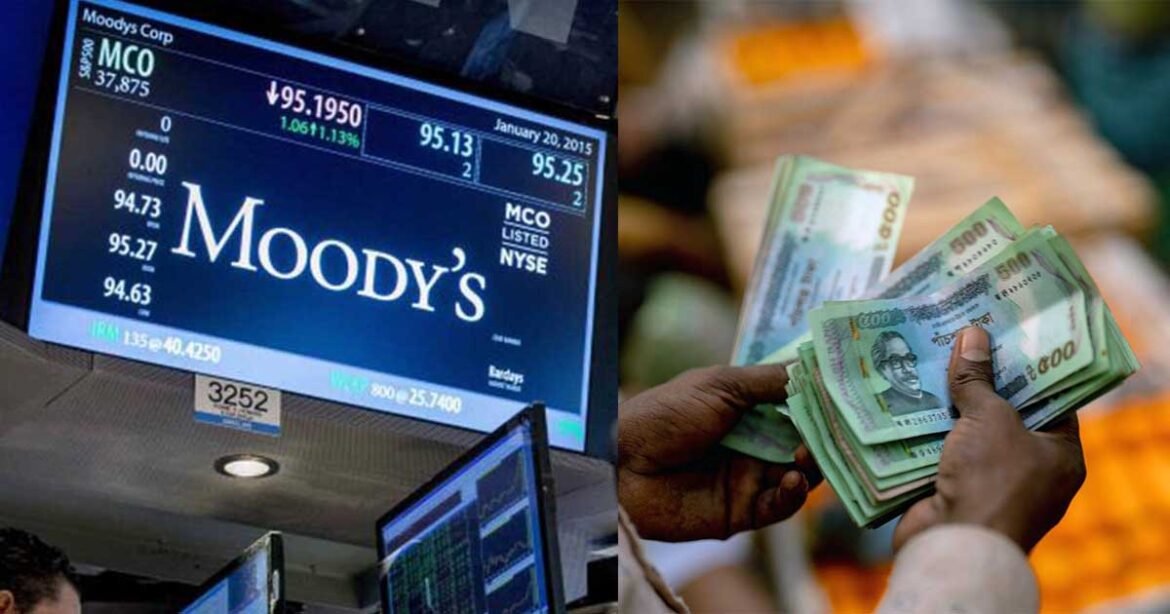The financial system in Bangladesh is facing increasing challenges due to rising import prices, falling remittance inflows, and high inflation, a research by Moody’s Investors Service warns.
The cost of borrowing from the interbank market or through the central bank’s repo rate has increased substantially, the credit rating agency announced. As a result, banks are having trouble in plugging the liquidity gaps. Moody’s warning came as banks in Bangladesh struggled with low reserves because of a combination of factors including rising inflation and a rise in demand for US dollars due to an upsurge in imports and a decrease in remittance inflows.
Weak banks to be in liquidity stress
Moody’s Investors Service expressed concerns that weak Bangladeshi banks with small holdings of government securities, which are utilized to get funds fr om the central bank or peers, could grow more vulnerable in the coming days.
You Can Also Read: Why has Bangladesh been snubbed again in US Democracy Summit?
“In the worst-case scenario, they could require extraordinary support from the BB to fulfill their obligations, which would shatter customer confidence and lead to deposit losses, further worsening their liquidity stress in a vicious cycle,” Moody’s said in the report.
The liquidity crunch
In June 2021, the liquidity of the financial sector began to tighten when banks were compelled to purchase more US dollars to make up for a shortage of the US dollars caused by an increase in importers’ demand for letters of credit. After June 2021, the extra cash deposited by banks at the central bank has therefore fallen significantly.
In 2022, banks tried to make up for a shortfall of dollars by boosting the selling of taka for dollars due to a surge in settlements of letters of credit for importers. According to Moody’s, this reduced liquidity in the financial sector. This has gotten worse as remittance inflows have stalled and as high inflation has eroded deposits.
Treasury bills and bonds are typically purchased by banks from the government. When they borrow money from their peers and the central bank, they use the securities as collateral.
According to the agency, weaker banks with less holdings of government assets will find it challenging to obtain funding from the interbank market. However, banks with sufficient liquid assets or solid funding mechanisms will be able to weather the crisis. Banks can borrow from the interbank market or utilize the central bank’s repurchase agreement (repo) tool to address liquidity shortages. But, Moody’s has warned that the rising costs of this type of funding will put a damper on banks’ capacity to turn a profit. The analysis emphasized the banking sector’s current vulnerabilities in Bangladesh.
Increased repo rate is an issue for borrowing
The weighted average of interbank repo rates increased to 8.1% by the end of 2022, up from 1.4% at the beginning of the year, while the weighted average of interbank overnight rates increased from 2.7% to 5.8%, the highest level since 2015.
In addition, the central bank increased the repo rate at which it loans to banks from 4.75 percent at the start of 2022 to 6 percent in January. Although interbank rates moderated in February, they are still quite high.
The report claimed that Islamic banks have a greater chance to fail because their liquidity buffers are lesser and they usually make less money. The analysis found that Islamic banks were more at risk due to their stricter regulations against interest-bearing government bonds and their smaller liquidity buffers. In addition, there is a limited supply of liquid Shariah-compliant instruments in Bangladesh.
Lower remittance and higher inflation are affecting the banks
The banking system is experiencing difficulties due to a lower-than-anticipated rate of remittances, the cheapest source of US dollars for Bangladesh. The number of remittances sent through banks dropped by 15% in the fourth quarter of 2022 compared to the previous three months, since the exchange rates at illegal or unregistered businesses were better for senders.
In order to protect the stability of the foreign exchange market, the central bank imposed a price ceiling on banks in September 2022, preventing them from offering competitive interest rates.
On the other hand, increases in household spending due to high inflation, which have hampered their ability to save, have slowed the growth of deposits, the primary source of bank funding. The annual growth rate of deposits slowed to 8% in the quarter ending in September from 11% in the previous quarter.
The pressure on liquidity might not go away completely in 2023. High inflation will keep deposits from growing, and economic uncertainty could cause exporters’ earnings to go down, the ratings agency said. It anticipates inflation in Bangladesh to reach between 7 and 8 percent this year, which is higher than the pre-pandemic rate of 5.5-6 percent.


